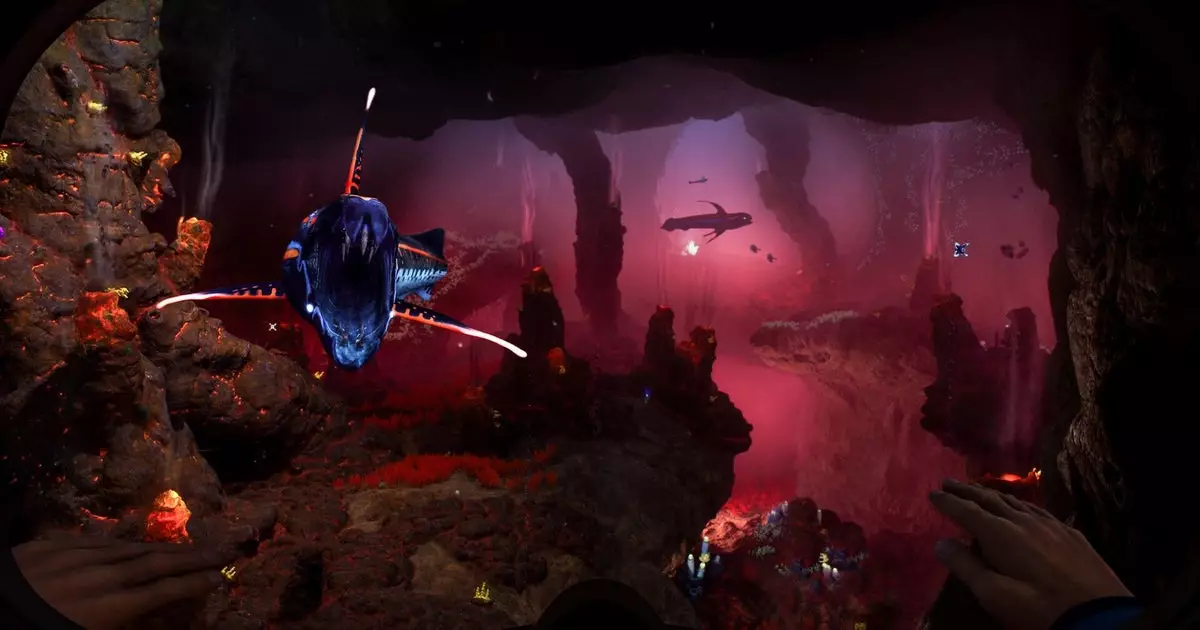In the ever-evolving landscape of video game development, delays are frequent but often cloaked in carefully curated official statements. However, the delay of Subnautica 2 into 2026 by its publisher Krafton reveals the underlying tensions and power dynamics that can derail even the most anticipated projects. Beyond mere scheduling adjustments, this postponement exposes a deeper conflict rooted in financial motives, leadership upheavals, and strategic bargaining. As one of the most anticipated survival titles—second only to Hollow Knight: Silksong—Subnautica 2’s setback is more than just inconvenient for players; it’s symptomatic of shifting industry power structures.
The core issue expertly encapsulates the clash between creative confidence and corporate priorities. Originally, the development team at Unknown Worlds believed their game was ready for release, a sentiment echoed by co-founder Charlie Cleveland. Cleveland’s candid remark that the game was “ready for early access” suggests genuine confidence in their work, which makes Krafton’s subsequent decision all the more perplexing and revealing. The official narrative from Krafton emphasizes “delivering the right game at the right time,” but beneath that veneer lies a strategic move perhaps motivated by financial and contractual concerns rather than the game’s actual readiness.
Financial Incentives and the Cost of Delaying
Financial considerations clearly loom large in this scenario. The report from Bloomberg highlights that Krafton’s delay will cause Unknown Worlds to miss out on a significant $250 million bonus—an amount earmarked for the studio’s employees. Such a bonus isn’t merely a figure; it is a catalyst for morale, motivation, and the retention of talent. For a studio with a reputation for innovative survival experiences, losing this financial incentive represents a blow that can shape its future development trajectory and its ability to attract talent.
Krafton’s financial health, exemplified by record profits in early 2025, adds a layer of irony to the delay. The company reported $608 million in sales and an operating profit of $308 million in the first quarter—a period of extraordinary profitability that could fund ambitious projects. Yet, the decision to postpone Subnautica 2 appears to be a calculated move, perhaps to manage cash flows, align the game’s launch with market conditions, or even leverage the delay into negotiating better terms or bonuses.
Furthermore, Krafton CEO Kim Chang-han’s substantial bonus of $3.9 million signals a leadership team that operates within a high-stakes environment where financial incentives are closely tied with strategic decisions. The delay, therefore, is not incidental but part of a broader power play—one where financial performance and contractual obligations intersect with the studio’s creative autonomy.
Leadership Turmoil and Corporate Politics
The upheaval within Unknown Worlds reveals how leadership disputes can influence project timelines. The ousting of key executives—including Cleveland, the studio’s co-founder— underscores internal conflicts that are often concealed behind corporate euphemisms. Cleveland’s statement that he felt “stings” from losing control over the project and that the decision was “in Krafton’s hands” hints at a power struggle more than a purely developmental decision.
The appointment of Striking Distance’s CEO Steve Papoutsis as the new head signals a shift in strategic direction. Such leadership changes during critical development phases inevitably introduce uncertainty, affecting team cohesion and project momentum. The lack of transparency about the true reasons behind the delay fuels suspicion that corporate politics—rather than game quality—are driving the decision.
Papoutsis’s vague responses, especially his statement that the game wasn’t aligned with the intended launch, suggests internal disagreements about the game’s state. His denial that the delay was specifically to impact financial bonuses may be a calculated effort to deny ulterior motives, but the timing and context events point toward a different narrative—one driven by internal power struggles and financial realpolitik.
The Industry’s Broader Implications
This scenario exemplifies a troubling trend within the gaming industry—where corporate interests, financial gains, and strategic bargaining often overshadow the creative process. Delays are frequently presented as necessary to “polish” a game, but sometimes they serve as bargaining chips or means of exerting control. When financial bonuses tied to corporate milestones are threatened by delays, the integrity of the development process is compromised.
Moreover, the human toll—exemplified by Cleveland’s lament—raises questions about the morality of such high-stakes corporate maneuvers. Talented developers work tirelessly driven by passion, only to find their visions undermined by contractual obligations or leadership shifts. The case of Subnautica 2 underscores the importance of transparent communication and ethical considerations in managing game development and publishing relationships.
As players eagerly await the next chapter of this underwater survival saga, industry insiders and consumers alike must recognize that delays often mask complex power struggles. Behind the scenes, financial stakes and leadership conflicts shape the destiny of beloved projects, sometimes at the expense of artistic vision. The Subnautica 2 delay is a stark reminder that in the modern gaming world, profit and power can often overshadow creativity and community trust.

